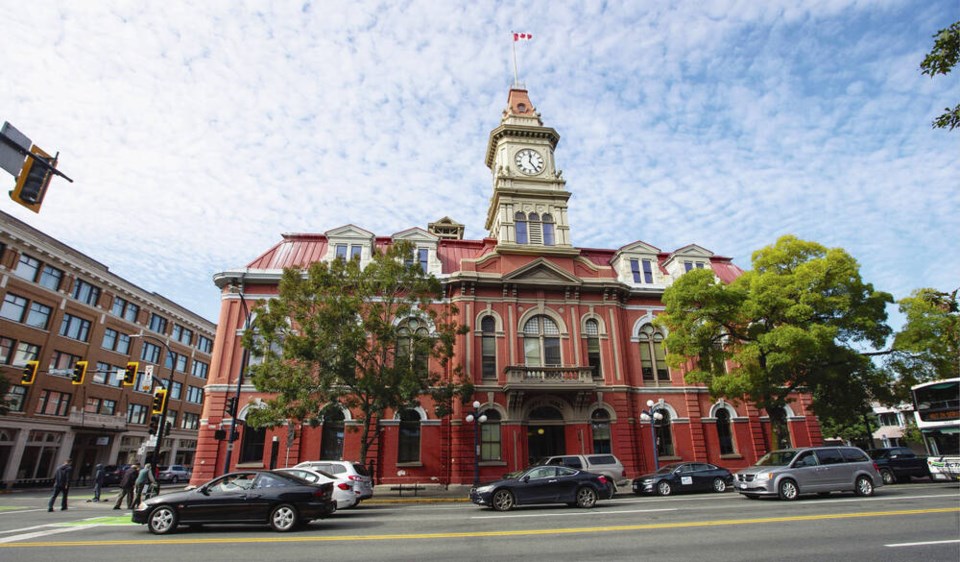Victoria residents could soon have the option of making a contribution to the Songhees and Esquimalt Nations when they pay their property taxes.
A motion going to council’s committee of the whole on Thursday suggests that beginning this year, residents be sent an extra letter in their property-tax notices offering the option of contributing an amount equal to five to 10 per cent of their taxes — or another amount — for the First Nations.
The city would collect the money and pass it on to the nations, alongside the $200,000 “reconciliation grant” council already approved from its coffers for the Songhees and Esquimalt Nations. The same amount is to be allocated annually in the draft financial plan for consideration by the next council, to be elected in October, as part of a five-year pilot project.
Victoria Mayor Lisa Helps stressed that under the current proposal, the contribution would not be a portion of property taxes but a separate, voluntary donation.
“When we send out property-tax notices we’ll send out an extra sheet that says: ‘Here’s what the city’s doing on reconciliation, here’s the principle of reciprocity, and would you voluntarily like to contribute,” Helps said. “It is really as simple as it sounds.”
Helps gave the example of a $4,400 property-tax bill for an average home generating a 10 per cent donation totalling $440.
Unlike property taxes that you have to pay by July 1, the contribution could be paid at any time.
“As the money continues to come in through the year, it can be transferred to the nations on a quarterly basis.”
Helps said if the plan is approved, Victoria would be the first municipality in B.C., and likely in Canada, to take such a step.
Simple and cost-neutral, “it’s something that every city across the province and across the country could very easily do to get money into the hands of nations,” she said.
Helps said the contributions would directly help First Nations on whose land the city was built and continues to grow, providing money for education, language revitalization and housing.
“It’s really exciting,” she said, calling the contribution plan reconciliation in action. “We’ve had hundreds of people come to various events — Orange Shirt Day, reconciliation dialogues — and everyone leaves wanting to do something.”
Reconciliation, Helps said, is based on understanding what happened to Indigenous people in the past — in both the city and the country — “and then understanding what actions we can take to do the repair work necessary and put Indigenous people on a good foot going forward for the future, so that they can have the same prosperity that the rest of us enjoy.”
For many people, news that started coming out last spring about children’s bodies buried outside the former Kamloops Indian Residential School galvanized their desire to help, she said.
“We can’t buy our way to reconciliation, but for people who did have a big wake-up call last [spring], this is part of reconciliation in a meaningful way.”
Songhees Nation executive director Katherine Legrange said it’s encouraging that some Victoria homeowners have expressed a desire to voluntarily contribute “as a meaningful and tangible step towards reconciliation.”
“We hope that this sets a precedent for other cities and municipalities to follow suit.”
The non-profit group Reciprocity Trusts has also been working on the concept around the south Island and has received commitments from more than 250 households to make voluntary contributions once a system is in place.
Helps’ voluntary-contribution proposal is backed by councillors Marianne Alto, Sarah Potts and Jeremy Loveday.
jbell@timescolonist.com



